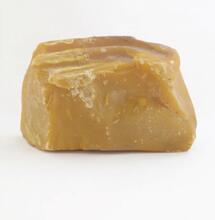Cannabis Doesn't Lead to Hard Drugs: Research from Japan

Japan is known for its strict regulations regarding psychoactive substances. For instance, last year, Japanese authorities issued a travel warning for Germany, citing the country’s growing drug problem. A team of researchers from various Japanese medical and academic institutions analysed data from a nationwide survey on psychoactive substance use. The findings were published in the specialised journal.
Cannabis opponents often claim that it is a "gateway drug." However, merely repeating this claim does not make it more credible. Numerous studies have consistently reported the opposite. Now, a new study from Japan adds weight to this evidence.
Study Purpose: Is Cannabis a Gateway Drug?
In Japan, cannabis is often referred to as a 'gateway drug,' but there is little conclusive evidence that cannabis consumption leads to the use of other substances. This study aims to investigate whether cannabis serves as a gateway drug among Japanese consumers," the researchers explained, emphasising the main focus of their study.
In January 2021, an anonymous online survey was conducted involving 3,900 individuals who had reported using cannabis. The data gathered included demographics, history of marijuana and other substance use, the order of substance use, psychiatric history, and potential criminal history. "A flowchart visualised the course of substance use, and odds ratios were calculated to assess the likelihood of using other substances after cannabis use," the study authors stated.
Are Alcohol and Tobacco more Commonly Used Than Cannabis?
The results demonstrated that alcohol and tobacco were the most commonly used substances before cannabis, which typically ranked third. "The probability of subsequent use of alcohol, tobacco, methamphetamine, and other illicit drugs after cannabis use was 1.25, 0.77, 0.08, and 0.78, respectively, indicating a low probability of progression. Nearly half of those who reported marijuana as their third drug did not go on to use any other substances," the researchers reported.
"These results challenge the gateway drug hypothesis in the Japanese context. Common vulnerability factors and restrictive drug policies may influence these patterns. Further research is needed to examine the impact of legal changes on drug use behaviour," the authors concluded.
Conclusions Consistent with Other Studies
The Japanese study aligns with a broader range of global analyses. Similar conclusions have been drawn in many other countries, where it has been shown that substance abuse often occurs before initial contact with cannabis. Whether a person progresses to more harmful substances after using marijuana depends on various factors, not solely on the act of using cannabis itself. Despite ongoing research and evidence, opponents of marijuana are likely to continue labelling it as a "first-line drug." However, scientific findings increasingly reveal that the reality is much more complex.
More From Soft Secrets:




